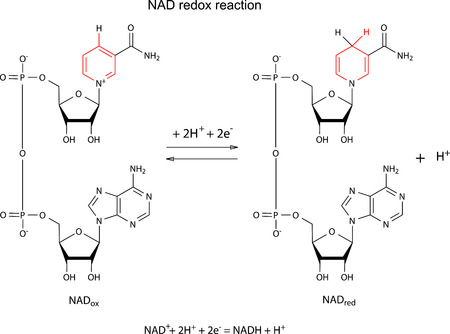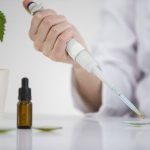1. The Link Between Hormones and Skin Health
Hormones play a major role in your skin’s health and appearance. When theyre balanced, your skin can look clear, hydrated, and vibrant. But when hormones are out of balance, they can lead to common skin issues like acne, dryness, and inflammation. Understanding this connection is the first step toward improving your skin from the inside out.
How Hormonal Imbalances Affect the Skin
Hormonal imbalances often occur due to stress, diet, aging, or certain medical conditions. These changes can cause your body to produce too much or too little of key hormones like estrogen, progesterone, testosterone, and cortisol. Each of these hormones affects your skin differently.
Common Skin Reactions to Hormonal Shifts
| Hormone | Effect on Skin | Common Symptoms |
|---|---|---|
| Estrogen | Promotes collagen production and moisture retention | Dryness, loss of elasticity when low |
| Progesterone | Can increase oil production | Puffiness, breakouts during PMS |
| Testosterone | Stimulates sebum (oil) production | Acne when levels are high |
| Cortisol (stress hormone) | Triggers inflammation and reduces skin healing ability | Redness, flare-ups, slower recovery from blemishes |
The Skin-Detox Connection
Your skin is one of the bodys natural detox pathways, along with the liver, kidneys, and lymphatic system. When hormones disrupt your internal detox processes, toxins may build up and show up on your skin as dullness, irritation, or persistent acne.
Signs Your Skin May Be Reflecting Hormonal Imbalance
- Frequent breakouts around the chin or jawline (often linked to hormonal acne)
- Sensitive or inflamed skin that doesn’t respond well to topical treatments
- Sudden dryness or oiliness that doesn’t match seasonal changes
- Persistent dark circles or puffiness under the eyes (can relate to adrenal fatigue)
Why This Matters for Overall Wellness
Your skin is a mirror of whats happening inside your body. By identifying how hormone shifts affect your skin’s clarity and its ability to detox naturally, you can take more targeted steps toward balancing your hormones—and achieving healthier-looking skin from within.
2. Hormones and the Body’s Natural Detox System
When we talk about hormone balance, most people think of mood swings or acne. But did you know your hormones also play a big role in how well your body detoxifies? Hormones help control key systems like liver function and digestion—both essential for flushing out toxins and keeping your skin clear and healthy.
How Hormones Support Detox
Your body is designed to detox naturally every day. This process mainly happens in the liver, where toxins are broken down and removed through urine, sweat, and waste. Hormones like estrogen, cortisol, insulin, and thyroid hormones all influence how efficiently this system works.
Key Hormones That Affect Detoxification
| Hormone | Main Function | Impact on Detox |
|---|---|---|
| Estrogen | Regulates reproductive system | Too much estrogen can slow liver detox pathways, leading to toxin buildup |
| Cortisol | Stress hormone that affects energy and metabolism | Chronic high levels can weaken digestion and liver function |
| Insulin | Controls blood sugar levels | Imbalanced insulin can lead to fat storage, which traps toxins in the body |
| Thyroid Hormones | Regulate metabolism | Low thyroid activity slows detox processes and digestion |
The Gut-Hormone Connection
Your digestive system isn’t just about breaking down food—it’s also a major player in detox. Healthy hormone levels help keep your gut working properly. For example, progesterone helps maintain a strong gut lining, while estrogen influences bile production, which helps flush out waste. When these hormones are off-balance, it can lead to constipation or poor nutrient absorption—making it harder for your body to get rid of toxins.
Signs Your Hormones May Be Impacting Detox
- Bloating or frequent constipation
- Persistent fatigue despite good sleep
- Mood swings or brain fog
- Sugar cravings or difficulty losing weight
- Dull skin or recurring breakouts not linked to skincare products
Why It Matters for Skin Clarity
If your body cant efficiently remove toxins because of hormonal imbalances, those toxins may be released through the skin instead—leading to clogged pores, inflammation, and breakouts. Supporting hormone health is one of the smartest ways to improve both detoxification and skin clarity from the inside out.

3. Common Hormonal Imbalances That Affect the Skin
When your hormones are out of balance, it doesn’t just affect your mood or energy—it can show up on your skin too. Hormones play a big role in detoxification and how clear or inflamed your skin looks. Let’s take a closer look at some of the most common hormonal imbalances that impact skin health.
Estrogen Dominance
Estrogen is an essential hormone for both women and men, but when there’s too much of it compared to progesterone, it can lead to what’s called estrogen dominance. This imbalance can cause:
- Stubborn acne, especially around the chin and jawline
- Increased oil production
- Puffiness or water retention in the face
Estrogen dominance may also slow down liver detox pathways, making it harder for your body to eliminate toxins that contribute to dull or irritated skin.
Cortisol Spikes (The Stress Hormone)
Cortisol is your body’s main stress hormone. When youre constantly stressed, cortisol levels stay elevated, and this can create chaos for your skin. High cortisol levels can lead to:
- Inflammation and redness
- Breakouts and flare-ups of conditions like eczema or psoriasis
- Slower healing of blemishes or wounds
Chronic stress also disrupts sleep, which is when your body does most of its repair work—including clearing out toxins and regenerating healthy skin cells.
Insulin Resistance
Insulin helps regulate blood sugar levels. But when your body becomes resistant to insulin—a common issue with poor diet or sedentary lifestyle—it can trigger a cascade of effects on the skin. These include:
- Frequent breakouts due to excess sebum production
- Dark patches on the skin, particularly around the neck and underarms (a condition known as acanthosis nigricans)
- More inflammation throughout the body, including the skin
Quick Overview: How Each Hormone Affects Skin Clarity
| Hormone Imbalance | Main Effects on Skin | Common Triggers |
|---|---|---|
| Estrogen Dominance | Cystic acne, puffiness, sluggish detox | Birth control pills, xenoestrogens (plastics), chronic stress |
| Cortisol Spikes | Redness, inflammation, slower healing | Lack of sleep, emotional stress, overexercising |
| Insulin Resistance | Breakouts, dark patches, oily skin | Sugar-heavy diet, processed foods, inactivity |
The Bottom Line on Hormonal Skin Disruptors
If you’re noticing changes in your skin—like more breakouts than usual or persistent inflammation—it might be time to look beyond skincare products and consider what’s happening internally. Understanding these common hormonal imbalances is a key step toward clearer skin and better overall detox support.
4. Lifestyle and Nutrition for Hormonal Balance
When it comes to healthy, glowing skin and effective detox, your hormones play a big role — and the way you live each day can either help or hurt that balance. The good news is, making mindful choices in what you eat, how you handle stress, and how you care for yourself can make a real difference.
Eat for Hormone Health and Skin Clarity
Your diet has a direct impact on hormone production and detox pathways in your body. Certain foods can support liver function, reduce inflammation, and regulate insulin — all of which are key players in keeping your hormones balanced and your skin clear.
Best Foods to Support Hormone Balance:
| Food Group | Examples | Benefits |
|---|---|---|
| Healthy Fats | Avocados, olive oil, flaxseeds, salmon | Support hormone production and reduce inflammation |
| Cruciferous Vegetables | Broccoli, kale, Brussels sprouts | Assist liver detoxification and estrogen metabolism |
| Fiber-Rich Foods | Berries, chia seeds, oats, lentils | Help eliminate excess hormones through digestion |
| Antioxidant-Rich Foods | Blueberries, green tea, dark leafy greens | Protect skin cells and reduce oxidative stress |
| High-Quality Protein | Organic chicken, eggs, tofu, beans | Stabilize blood sugar and support adrenal health |
Manage Stress for Better Hormone Function
Chronic stress increases cortisol levels — a hormone that can throw off the rest of your hormonal system. When cortisol is too high for too long, it can lead to acne flare-ups, poor digestion (which affects detox), and even disrupt your menstrual cycle.
Simple Stress Management Techniques:
- Deep Breathing: Practice 5 minutes of slow breathing daily to calm your nervous system.
- Meditation: Use apps like Headspace or Calm to guide you through short mindfulness sessions.
- Movement: Gentle exercises like walking or yoga help lower stress hormones naturally.
- Digital Detox: Take breaks from screens to give your brain time to recharge.
- Laughter & Connection: Spend time with friends or watch something funny — it really helps!
Create a Hormone-Friendly Self-Care Routine
Your daily habits matter more than you think. Consistent sleep schedules, reducing exposure to toxins in skincare products, and making time for yourself all contribute to hormonal harmony and clearer skin.
Tips for Daily Self-Care:
- Aim for 7–9 hours of quality sleep each night.
- Avoid endocrine disruptors: Choose clean beauty products free from parabens and synthetic fragrances.
- Create a bedtime routine: Dim lights an hour before sleep and avoid caffeine late in the day.
- Sip herbal teas: Chamomile or spearmint tea can help relax your body and support hormone balance.
- Add Epsom salt baths weekly: They help with magnesium absorption which supports detox pathways.
Your lifestyle doesn’t have to be perfect — small changes over time can lead to noticeable improvements in both your hormone health and skin clarity. Start with one new habit today and build from there!
5. Skincare Practices for Hormone-Related Breakouts
When hormones are out of balance, your skin often shows it—especially through breakouts, oiliness, or dullness. The good news is that you can support your skin’s natural detox process by choosing the right skincare ingredients and routines that work with your hormones, not against them.
Hormone-Friendly Ingredients to Look For
Some ingredients are especially helpful in calming hormone-related breakouts without disrupting your skin barrier or causing irritation. Here are a few top picks:
| Ingredient | Benefits |
|---|---|
| Niacinamide (Vitamin B3) | Reduces inflammation, regulates oil production, and strengthens the skin barrier |
| Zinc | Helps control sebum and supports hormonal balance in the skin |
| Salicylic Acid | Unclogs pores and reduces acne-causing bacteria |
| Green Tea Extract | Rich in antioxidants; helps reduce hormonal inflammation and redness |
| Aloe Vera | Soothes irritated skin and supports healing without clogging pores |
Daily Skincare Routine Tips
Your skincare routine doesn’t need to be complicated to be effective. Focus on consistency and using products that support your hormonal health.
Morning Routine
- Cleanser: Use a gentle, sulfate-free cleanser to remove overnight buildup.
- Toner: Choose one with calming ingredients like chamomile or witch hazel (alcohol-free).
- Treatment Serum: Apply niacinamide or green tea extract to reduce oil and inflammation.
- Moisturizer: Go for a lightweight, non-comedogenic formula with hyaluronic acid.
- Sunscreen: Always use broad-spectrum SPF 30+ sunscreen—sun damage can worsen breakouts.
Evening Routine
- Cleansing: Double cleanse if you wear makeup or sunscreen—start with an oil-based cleanser followed by a gentle foaming wash.
- Treatment: Use salicylic acid or retinol (if tolerated) to help clear pores and renew skin cells.
- Nourishing Serum: Try one with peptides or aloe vera to calm and repair overnight.
- Night Cream: Choose a richer moisturizer if your skin feels dry or tight from treatments.
Lifestyle Habits That Support Clear Skin
Your skincare efforts go even further when paired with healthy lifestyle habits that support hormone balance and detoxification.
- Stay Hydrated: Water helps flush out toxins that may otherwise show up on your skin.
- Avoid Excess Sugar and Dairy: These can spike insulin levels and worsen hormonal acne in some people.
- Get Quality Sleep: Hormones reset during rest—aim for at least 7–8 hours per night.
- Manage Stress: Chronic stress raises cortisol, which can trigger breakouts. Practice yoga, journaling, or deep breathing daily.
Treatments Worth Considering
If you’re dealing with persistent hormone-related acne, consider professional treatments that are safe for sensitive or reactive skin types.
| Treatment | Description |
|---|---|
| Chemical Peels (Light) | Use mild acids like lactic or mandelic acid to exfoliate without over-stripping the skin |
| L.E.D. Light Therapy | Blue light helps kill acne bacteria; red light reduces inflammation and supports healing |
| Mild Microneedling | Stimulates collagen while helping serums absorb more effectively—only under professional guidance |
| Facials with Lymphatic Drainage Massage | Aids detoxification by improving circulation and reducing puffiness or congestion in the skin |
The key to managing hormone-related breakouts is working with your body—not against it. By focusing on gentle, hormone-friendly skincare practices and supporting overall wellness, you’ll help your skin stay clearer, calmer, and more radiant over time.

